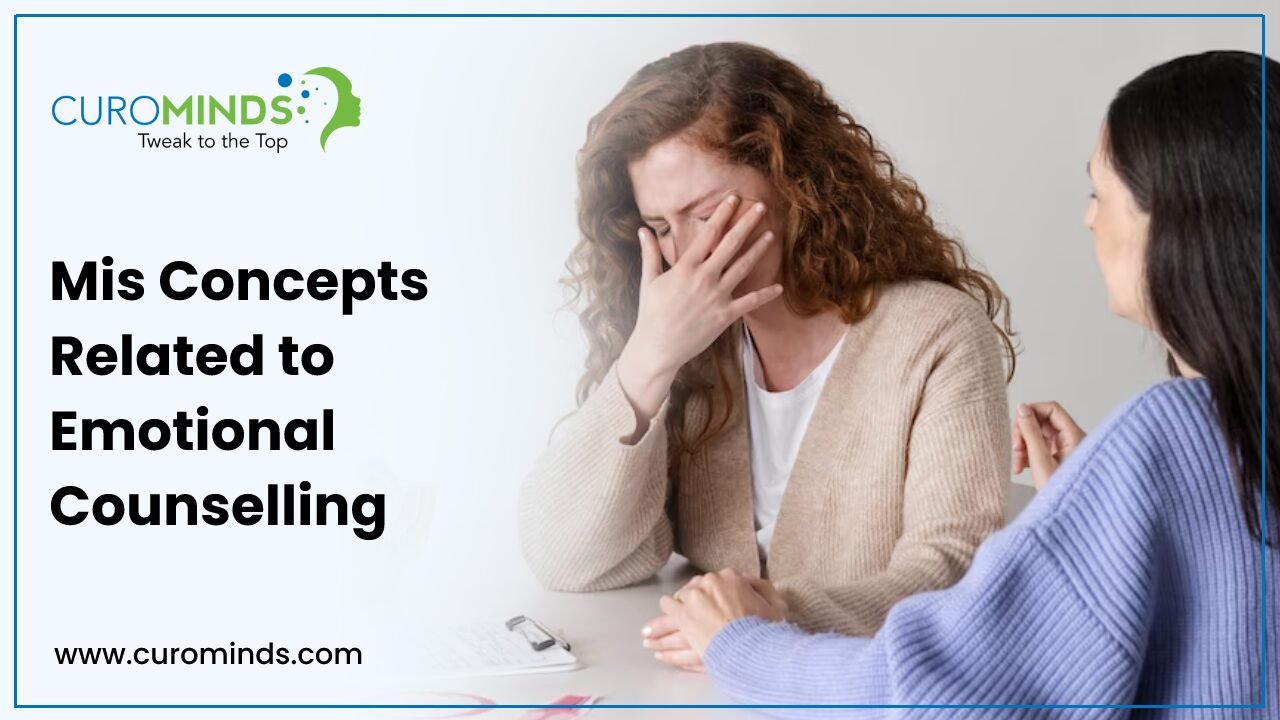Our Expertise


The word “mental health” is often used in a variety of contexts. Mental health and psychological treatment for mental health disorders are frequently treated with scepticism and controversy due to societal stigma and a lack of understanding about their relevance. Going to the doctor while you’re ill usually carries little to no stigma, but seeking counselling is frowned upon. The many misconceptions, surrounding emotional counselling, actually stop some people from seeking the help that they need.
Let’s bust some of these myths about counselling and bring the hard facts out.
While emotional counsellors at CuroMinds may not have similar experiences as you, they are trained to be respectful of individual diversities. Regardless of your background or unique concerns, they are there to accompany you through a difficult time in your life.
Many people think that you need to have a psychiatric problem or be severely mentally sick in order to see a counsellor. The truth is very different. Everyone can benefit from counselling. Emotional Counsellors at CuroMinds are professionally educated to assist individuals with a wide range of concerns, whether you’re looking for support for common topics like stress management or relationship problems, mental health difficulties like depression, or life events like a loss.
Asking for help is not a sign of weakness. It just means that you’re taking action. In fact, knowing when to ask for help is actually a sign of strength and self-awareness. Just because you may have had one bad experience with counselling, this doesn’t mean the treatment isn’t for you. The ‘therapeutic alliance’ is at the core of every successful counselling treatment. One of the most dependable predictors of successful counselling results is definitely the presence of trust, respect, and a commitment to a shared objective.
Counseling is repeatedly criticized as being useless since counsellors only restate common information. But wisdom that everyone may use is common sense. Contrarily, therapy offers a perspective that is unique to you and your requirements. Counsellors apply methods, ideas, and strategies that have undergone extensive investigation and study. Emotional counselling at CuroMinds focuses only on you and attempts to understand and direct you to reach your objectives with the assistance of a professional. Counselling is not just a form of medicine. It is a lifestyle choice. It is one of the many ways in which we learn to cope with life and enjoy it.
CUROMINDS – Emotional Counselling Experts – offers the opportunity to change by helping in establishing specific goals, improving coping skills, promoting decision making, and improving relationships across life domains, with the help of experts.